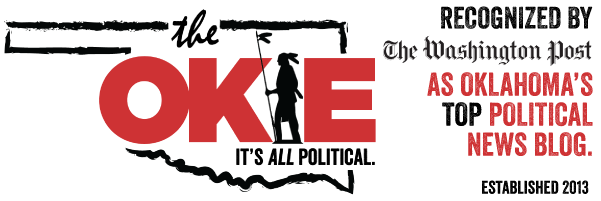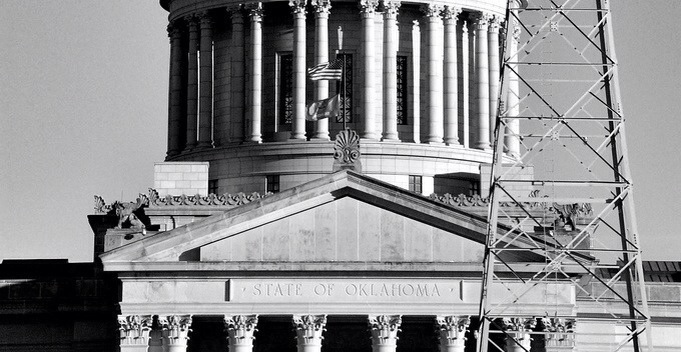Pruitt Weighs In On National Popular Vote
Attorney General Puitt send the following letter to Speaker Hickman last week. Read the letter here.
The Honorable Jeff Hickman Speaker of the Oklahoma House of Representatives 2300 N. Lincoln Blvd. Room 401 Oklahoma City, OK 73105
Dear Mr. Speaker,
Thank you for your service to the State of Oklahoma and its citizens. Oklahoma is an example to other states of how fiscal responsibility and limited government can lead to economic prosperity. I commend your leadership and commitment to these issues.
Today, however, I write to you out of concern over a bill that would undermine the will of Oklahoma voters, circumvent the intent of our nation’s founders, as well as limit our state’s influence in the selection of our president. Senate Bill906, the National Popular Vote Compact, would have Oklahoma sign an agreement with other states to grant our electoral votes to the winner of the national popular vote rather than according to the outcome of the presidential vote in our state.
This is very concerning to me because of the strong likelihood SB 906 could disenfranchise a majority of Oklahoma voters. Had SB 906 been law in 2012, Oklahoma’s electoral votes would have gone to President Obama rather than Governor Mitt Romney, who won each of the state’s 77 counties and the overall statewide vote 66% to 33%. The candidate that wins the presidential vote in Oklahoma should receive our state’s electoral support regardless of political party or the outcome of the national popular vote.
In their wisdom, the Founding Fathers created the Electoral College to ensure states with smaller populations, such as Oklahoma, had a strong voice in the selection of our president. However, SB 906 undermines the Founders’ intent with the Electoral College. Electoral votes should be granted according to the outcome of the presidential vote in Oklahoma. We should not let voters elsewhere displace our state’s influence and power in the selection of the president of the United States. I strongly urge you to keep these concerns in mind as SB 906 is considered by the Legislature.
Sincerely,
E. Scott Pruitt
Attorney General of Oklahoma
Cc: President Pro Tempore Bingman


With the current state-by-state winner-take-all system of awarding electoral votes (not mentioned in the U.S. Constitution, but since enacted by 48 states), it could only take winning a bare plurality of popular votes in only the 11 most populous states, containing 56% of the population of the United States, for a candidate to win the Presidency with a mere 23% of the nation’s votes!
In 1789, in the nation’s first election, the people had no vote for President in most states, only men who owned a substantial amount of property could vote, and only three states used the state-by-state winner-take-all method to award electoral votes.
The statewide winner-take-all rule (used by 48 of the 50 states) is not in the Constitution. It was not the Founders’ choice (having been used by only three states in the nation’s first presidential election in 1789). It was not debated at the Constitutional Convention, and it was not mentioned in the Federalist Papers. The Founders were dead for decades before the winner-take-all rule became prevalent.
The constitutional wording does not encourage, discourage, require, or prohibit the use of any particular method for awarding the state’s electoral votes.
Unable to agree on any particular method for selecting presidential electors, the U.S. Constitution in Article II, Section 1 gives the states exclusive and plenary control over the manner of awarding their electoral votes:
“Each State shall appoint, in such Manner as the Legislature thereof may direct, a Number of Electors….”
“The bottom line is that the electors from those states who cast their ballot for the nationwide vote winner are completely accountable (to the extent that independent agents are ever accountable to anyone) to the people of those states. The NPV states aren’t delegating their Electoral College votes to voters outside the state; they have made a policy choice about the substantive intelligible criteria (i.e., national popularity) that they want to use to make their selection of electors. There is nothing in Article II (or elsewhere in the Constitution) that prevents them from making the decision that, in the Twenty-First Century, national voter popularity is a (or perhaps the) crucial factor in worthiness for the office of the President.” – Vikram David Amar
A survey of Oklahoma voters showed strong overall support for the idea that the President of the United States should be the candidate who receives the most popular votes in all 50 states.
Voters were asked “How do you think we should elect the President: Should it be the candidate who gets the most votes in all 50 states, or the current Electoral College system?”
By political affiliation, support for a national popular vote was 79% among Republicans, 84% among Democrats, and 75% among others.
By gender, support was 84% among women and 69% among men.
By age, support was 84% among 18-29 year olds, 70% among 30-45 year olds, 75% among 46-65 year olds, and 82% for those older than 65.
Most Americans don’t ultimately care whether their presidential candidate wins or loses in their state or county . . . they care whether he/she wins the White House. Voters want to know, that even if they were on the losing side, their vote actually was directly and equally counted and mattered to their candidate. Most Americans think it would be wrong for the candidate with the most popular votes to lose. We don’t allow this in any other election in our representative republic.
NationalPopularVote